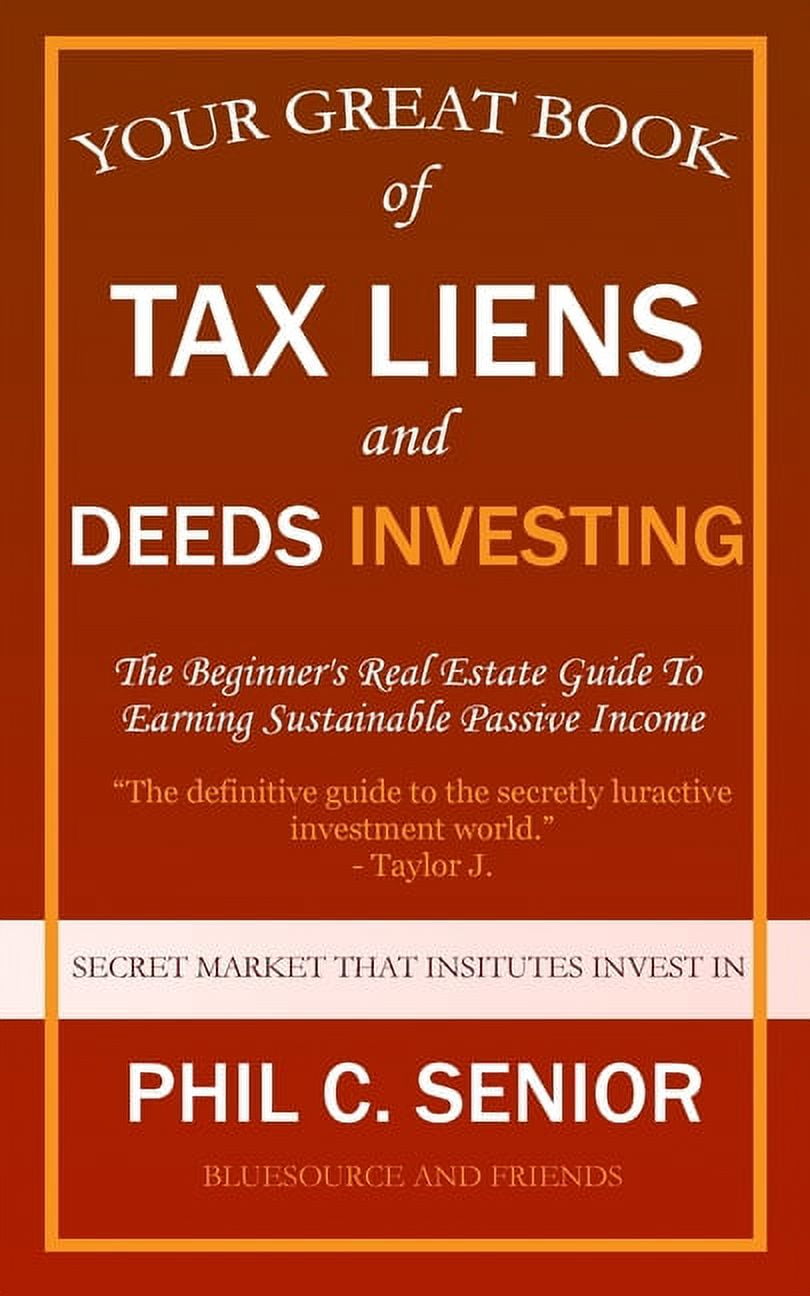All Categories
Featured
Table of Contents
In lots of situations, you will certainly have to outbid various other investors by supplying to pay a higher costs (tax lien investing scams). This costs is typically much less than the actual quantity of tax obligations owed, however it's up to the financier to decide if the danger is worth the collection benefit. In many places, residential property tax obligations are around one percent of the home's worth

Tax lien financiers make their cash on the rate of interest settlements they gather when the home owner pays back the taxes they owe. In some areas, these interest prices are as high as 18 percent, which is greater than the typical charge card rates of interest. Homeowner can pay what they owe at one time, or they can take place a repayment plan varying from one to 3 years.
Tax Lien Investing Risks
In the above instance, somebody with an exceptional tax debt of $4k (2 years of back taxes) would be supplying a tax lien holder with potentially as much as $720 in rate of interest payments, dealing with the 18 percent rates of interest we discussed earlier. One of the best benefits to tax lien investors is the potential to get a new home for their genuine estate profile, without having to pay its market value.

It's a win-win scenario for the tax lien financier. There are some disadvantages to tax lien investing.
As soon as the lien is paid, the investor must move on and seek a new investment. Of training course, if the residential or commercial property proprietor is still in default, the lien owner will obtain the property, which could become a recurring resource of revenue. Someone who purchases a tax lien may find themselves entangled with various other liens on the building, especially if they wind up asserting the home in case the financial obligation goes unsettled.
This might bring about great deals of legal fights, which is why it is essential to collaborate with lawyers and tax obligation consultants that understand things like act vs title. and can aid with performing due diligence on a building. The laws around tax obligation lien investing (and associated issueslike foreclosing on renters) are not consistent across states that offer financiers the capacity to take part in a tax lien sale.
Given that tax liens are typically cost public auction, contending prospective buyers will certainly bid up the premium and bid down the rate of interest price that can be gathered on the unpaid tax obligations. The champion of the public auction will certainly be the real estate financier who is paying the greatest costs and getting the most affordable rates of interest in return.
Tax Lien Investment Fund
In this vein, tax lien investing is a little a lot more sport-like than traditional passive means of making earnings. The very first point you'll wish to do is get acquainted with the location you're thinking about in terms of the property market. Keep in mind that one advantage of ending up being a lienholder is collecting the home if the debt goes overdue, so you will require to know where that home is.
When you've determined these information out, you need to call your neighborhood area treasurer's office to learn when and where the next tax obligation lien public auction is being held. These auctions are commonly kept in person, yet in today's day and age, a lot of have actually transitioned to on-line places.

Many local papers publish these checklists each year or semiannually. This can give you a good idea about upcoming possibilities. Keep in mind that home tax obligations are normally one percent of the home value, but unpaid tax obligations accumulating over several years could be a much more substantial amount. You can take advantage of your own cash gets or discover choices like property crowdfunding to obtain the capital you need.
Tax Lien Investment Funds
it has the included perk of obtaining the residential property if the financial obligation stays unsettled. While it can be a rewarding possibility for the capitalist, it does require some strategic footwork. Occupants and property owners do have lawful protections that make tax obligation lien investing a more engaged procedure than just bidding to buy a financial debt and waiting to accumulate the payment.
Investing in tax obligation liens entails purchasing a lawful insurance claim on a residential property because of unpaid home taxes. This method of investing has actually obtained popularity as a result of its capacity for high returns with fairly reduced initial capital. Tax liens are normally cost public auctions, and the process can vary relying on the area.

Investors look for out tax obligation liens for a number of factors: 1. Low Initial Investment: Tax obligation lien investing typically requires a little amount of money to start, making it obtainable to a broad variety of investors.
Tax Lien Investing
3. Property Procurement: If the home owner fails to pay the past due tax obligations and rate of interest within the redemption duration, the capitalist may can seize and obtain the building. Create an account online, or call us for further info. When investors acquire a tax obligation lien, they pay the past due taxes on a residential or commercial property and obtain a tax obligation lien certificate.
Repayment by the Home Owner: The residential property proprietor pays off the past due taxes plus rate of interest within a specified period, and the financier receives the settlement with passion. Repossession: If the residential property owner does not repay the tax obligations within the redemption period, the capitalist can initiate foreclosure proceedings to acquire the residential property.
The self-directed IRA acquisitions the lien certification and pays linked fees. Tax obligation Lien: The government sells a lien on the residential or commercial property due to unpaid taxes.
Tax Lien Investing Secrets
Tax obligation Act: The government offers the actual act to the home at auction. The winning bidder obtains possession of the building right away. Some states utilize a hybrid method, where a lien might result in an act sale if not repaid. According to the National Tax Lien Association (NTLA), 36 states and 2,500 jurisdictions within the United States enable the sale of tax liens, while only 31 states permit tax action sales.
Table of Contents
Latest Posts
Sheriff Sale For Back Taxes
House Tax Foreclosures
Tax Foreclosure Listings Free
More
Latest Posts
Sheriff Sale For Back Taxes
House Tax Foreclosures
Tax Foreclosure Listings Free